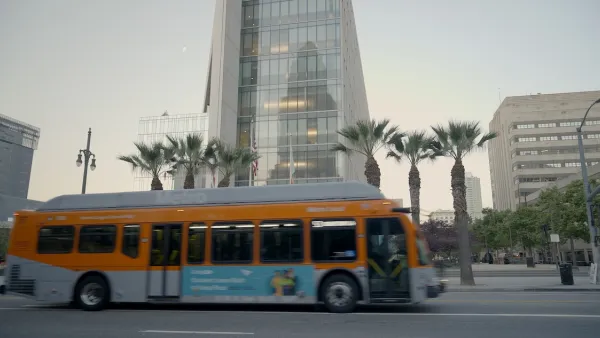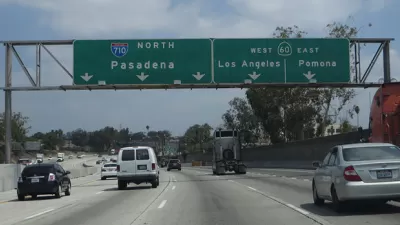Despite the program’s success across the region and rising production costs, Los Angeles-area events could receive less funding in the coming year.

In an opinion piece in Streetsblog LA, Wes Reutimann, Special Programs Director and co-founder of the Pasadena Complete Streets Coalition and ActiveSGV, praises the region’s expansive Open Streets program, which includes events like CicLAvia and Beach Streets that have grown in size and scope since they first launched in 2010.
“Beloved by local families and Angelenos from all walks of life, these family-friendly experiences provide the public with a fleeting snapshot of what a more sustainable, multi-modal Southern California could look like.” So, Reutimann asks, why is LA Metro proposing slashing open streets funding by as much as 40 percent? Reutimann points out that the cost of producing events is rising, with insurance costs and safety considerations adding significant costs that will be hard to make up through private sponsorship.
Reutimann argues that “The value of Open Streets has never been greater,” bringing together community and helping California promote multimodal, sustainable transportation. “After a decade, Metro should be sponsoring about one Open Streets event a month, highlighting the county’s rich diversity and its expanding and improving public transit system. The level of continued investment required to reach this goal – just $2-3 million per year above where it is now – is peanuts to an agency that routinely approves cost overruns for highway projects in the tens of millions.”
FULL STORY: Los Angeles Loves “Open Streets” Events – So Why Would Metro Slash Funding?

Planetizen Federal Action Tracker
A weekly monitor of how Trump’s orders and actions are impacting planners and planning in America.

Canada vs. Kamala: Whose Liberal Housing Platform Comes Out on Top?
As Canada votes for a new Prime Minister, what can America learn from the leading liberal candidate of its neighbor to the north?

The Five Most-Changed American Cities
A ranking of population change, home values, and jobs highlights the nation’s most dynamic and most stagnant regions.

San Diego Adopts First Mobility Master Plan
The plan provides a comprehensive framework for making San Diego’s transportation network more multimodal, accessible, and sustainable.

Housing, Supportive Service Providers Brace for Federal Cuts
Organizations that provide housing assistance are tightening their purse strings and making plans for maintaining operations if federal funding dries up.

Op-Ed: Why an Effective Passenger Rail Network Needs Government Involvement
An outdated rail network that privileges freight won’t be fixed by privatizing Amtrak.
Urban Design for Planners 1: Software Tools
This six-course series explores essential urban design concepts using open source software and equips planners with the tools they need to participate fully in the urban design process.
Planning for Universal Design
Learn the tools for implementing Universal Design in planning regulations.
New York City School Construction Authority
Village of Glen Ellyn
Central Transportation Planning Staff/Boston Region MPO
Institute for Housing and Urban Development Studies (IHS)
City of Grandview
Harvard GSD Executive Education
Regional Transportation Commission of Southern Nevada
Toledo-Lucas County Plan Commissions





























